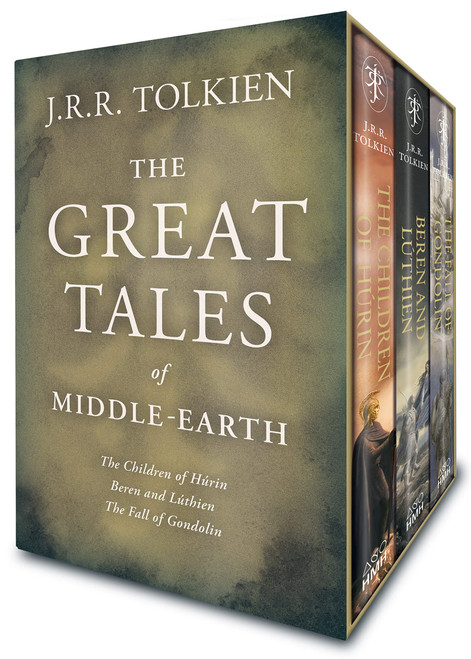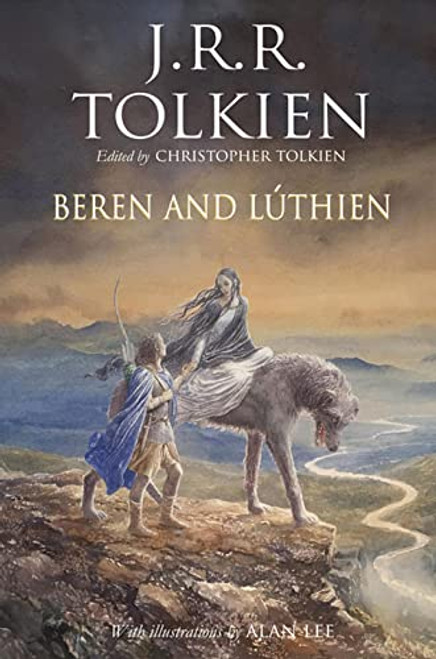Painstakingly restored from Tolkiens manuscripts and presented for the first time as a continuous and standalone story, the epic tale of Beren and Lthien will reunite fans of The Hobbit and The Lord of the Rings with Elves and Men, Dwarves and Orcs and the rich landscape and creatures unique to Tolkiens Middle-earth. The tale of Beren and Lthien was, or became, an essential element in the evolution of The Silmarillion, the myths and legends of the First Age of the World conceived by J.R.R. Tolkien. Returning from France and the battle of the Somme at the end of 1916, he wrote the tale in the following year. Essential to the story, and never changed, is the fate that shadowed the love of Beren and Lthien: for Beren was a mortal man, but Lthien was an immortal Elf. Her father, a great Elvish lord, in deep opposition to Beren, imposed on him an impossible task that he must perform before he might wed Lthien. This is the kernel of the legend; and it leads to the supremely heroic attempt of Beren and Lthien together to rob the greatest of all evil beings, Melkor, called Morgoth, the Black Enemy, of a Silmaril. In this book Christopher Tolkien has attempted to extract the story of Beren and Lthien from the comprehensive work in which it was embedded; but that story was itself changing as it developed new associations within the larger history. To show something of the process whereby this legend of Middle-earth evolved over the years, he has told the story in his father's own words by giving, first, its original form, and then passages in prose and verse from later texts that illustrate the narrative as it changed. Presented together for the first time, they reveal aspects of the story, both in event and in narrative immediacy, that were afterwards lost.
Beren & Lthien Deluxe Slipcase Edition
MSRP:
Was:
Now:
$80.84 - $95.63
(You save
)
- SKU:
- UPC:
- 9780008214203
- Maximum Purchase:
- 2 units
- Binding:
- Hardcover
- Publication Date:
- 6/1/2017
- Author:
- J.R.R. Tolkien
- Language:
- English: Published; English: Original Language; English
- Pages:
- 288

Houghton Mifflin Harcourt
The Great Tales Of Middle-Earth: The Children of Hrin, Beren and Lthien, and The Fall of Gondolin
MSRP:
Was:
Now:
$65.28 - $77.44

Something is Killing the Children Book One Deluxe Limited Slipcased Edition HC: Second Edition
MSRP:
Was:
Now:
$49.03 - $59.33

Arcturus Editions
The Book of Five Rings: Deluxe Slipcase Edition (Arcturus Silkbound Classics, 22)
MSRP:
Was:
Now:
$22.68 - $27.83

Aleph: Deluxe, slipcased hardcover, signed by the author
MSRP:
Was:
Now:
$300.00
![Astrance: A Cook's Book [Deluxe Version in Slipcase] Astrance: A Cook's Book [Deluxe Version in Slipcase]](https://cdn11.bigcommerce.com/s-rr0pkl7rnl/images/stencil/500x659/products/84035/163829/41sTS7Zq84L__05495.1727705411.jpg?c=1)
Astrance: A Cook's Book [Deluxe Version in Slipcase]
MSRP:
Was:
Now:
$300.00 - $2,006.88

Goodnight Moon 75th Anniversary Slipcase Edition
MSRP:
Was:
Now:
$13.17 - $27.10

Brand: Harry N Abrams
The Discoverers: Volumes I and II Deluxe Illustrated Set with Slipcase
MSRP:
Was:
Now:
$131.30 - $154.50

W. W. Norton & Company
The Norton Anthology of Children's Literature: The Traditions in English (Slipcased Edition)
MSRP:
Was:
Now:
$64.09 - $300.00
!



